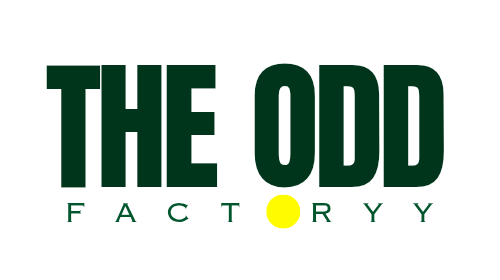In the ever-evolving realm of the fashion industry, where trends shift like the wind, and consumer preferences are as diverse as the designs on the runway, the demand for custom clothing manufacturing has surged. This demand is not just a passing trend but a fundamental shift in how both brands and individuals approach fashion. From private label clothing to bespoke creations, the appeal of tailor-made garments transcends the ordinary, offering a unique avenue for expressing individuality. In this comprehensive guide, we delve deep into the intricacies of custom clothing manufacturing, exploring its importance, the manufacturing process, and key aspects of working with bespoke clothing manufacturers worldwide.
What is Custom Clothing Manufacturing?
At its core, custom clothing manufacturing is a specialized process wherein garments are crafted according to specific client requirements. This process goes beyond merely selecting designs from a catalog; it encompasses choosing fabrics, styles, and even the label that will adorn the finished product. Whether it\’s the vibrancy of bespoke clothing manufacturers in India, the sophistication of custom clothing manufacturers in London, or the precision of a custom clothing manufacturer in Melbourne, the essence remains the same — to turn unique visions into tangible, high-quality garments.
Importance of Custom Clothing in the Fashion Industry
- Brand Identity: In a market saturated with options, creating a distinct brand identity is imperative. Custom clothing allows brands to do just that by tailoring designs to reflect their unique style and ethos.
- Quality Control: The ability to maintain stringent control over the quality of products is a significant advantage of custom manufacturing. Brands can choose materials and oversee the manufacturing process to ensure the final product meets the highest standards.
- Market Responsiveness: The fashion industry is dynamic, with trends evolving rapidly. Custom clothing provides brands with the flexibility to adapt to changing market demands swiftly, staying ahead of the curve.
- Customer Engagement: Custom clothing fosters a deeper connection between brands and consumers. Allowing customers to participate in the creative process by choosing designs, fabrics, and styles creates a more engaging and personalized experience.
The Process of Custom Clothing Manufacturing
The journey from a concept to a finished garment involves several meticulous steps, each contributing to the creation of a unique, tailored product.
- Consultation and Design Phase: The process kicks off with collaborative discussions between the client and the manufacturer. These discussions revolve around design preferences, fabric choices, and specific requirements.
- Pattern Making: Skilled pattern makers then translate the agreed-upon designs into templates. These patterns serve as a blueprint for cutting fabrics with precision.
- Fabric Selection: One of the appealing aspects of custom clothing is the freedom to choose from a diverse range of fabrics. Clients can opt for materials that align with their preferences in terms of aesthetics, comfort, and sustainability.
- Cutting and Sewing: The chosen fabric is cut according to the patterns, and skilled craftsmen meticulously sew the pieces together. This stage is where the garment starts to take shape.
- Quality Checks: Rigorous quality checks are conducted at various stages of the manufacturing process. This ensures that each garment meets the client\’s specifications and adheres to the high standards set by the manufacturer.
- Finishing Touches: The final product undergoes finishing touches, including labeling, packaging, and any additional customization requested by the client. This stage is crucial in ensuring that the end product aligns perfectly with the client\’s vision.
Tips for Working with a Custom Clothing Manufacturer
While the advantages of custom clothing manufacturing are apparent, a successful collaboration relies on effective communication and a clear understanding of expectations. Here are some valuable tips for brands and individuals embarking on a journey with a custom clothing manufacturer:
- Clear Communication: Establish open channels of communication from the outset. Clearly convey your vision, brand values, and specific requirements to ensure that everyone is on the same page.
- Detailed Specifications: Provide comprehensive details about your designs, preferred fabrics, sizing, and any other specific requirements. The more detailed your specifications, the more likely the final product will align with your expectations.
- Sample Approval: Insist on receiving and approving samples before mass production begins. This step is crucial in identifying any potential issues early on and making necessary adjustments.
- Timely Feedback: Provide timely feedback during the manufacturing process. This not only helps in addressing any concerns promptly but also ensures that the production timeline stays on track.
Benefits of Working with a Custom Clothing Manufacturer
The advantages of collaborating with a custom clothing manufacturer are far-reaching and extend beyond the obvious appeal of unique, tailored products. Let\’s explore some of the key benefits:
-
- Unique Products: The most obvious benefit is the creation of unique, one-of-a-kind products that set your brand apart in a competitive market.
- Quality Assurance: With custom clothing manufacturing, brands can rest assured that their products meet the highest standards of craftsmanship and materials. This focus on quality is a crucial factor in building a brand\’s reputation.
- Flexibility and Adaptability: In an industry where trends change rapidly, the ability to adapt is a significant advantage. Custom manufacturing allows brands to respond quickly to changing market demands, ensuring they stay relevant and appealing to consumers.
- Brand Loyalty: Engaging customers in the creative process fosters a sense of ownership and loyalty. When customers can actively participate in designing their clothing, it creates a connection that goes beyond the transactional.
Key Characteristics of a Custom Clothing Manufacturer:
- Expertise in Diverse Styles: A reputable manufacturer should demonstrate proficiency in producing various styles and designs. Whether it\’s casual wear, formal attire, or specialized garments, versatility is a valuable trait.
- Quality Control Measures: The implementation of stringent quality control measures is crucial. A reliable manufacturer should have robust systems in place to ensure consistency in product excellence.
- Adherence to Timelines: Meeting deadlines is paramount in the fast-paced world of fashion. A manufacturer\’s ability to adhere to agreed-upon timelines reflects professionalism and reliability.
- Transparent Communication: Clear and transparent communication is the bedrock of a successful collaboration. A manufacturer who keeps the lines of communication open, provides regular updates, and addresses concerns promptly is an invaluable partner.
Wholesale Clothing Manufacturers and Suppliers
Wholesale clothing manufacturers and suppliers form the backbone of the fashion supply chain. These entities cater to the needs of retailers and brands looking to stock their inventory with a variety of products. Custom clothing manufacturers often offer wholesale options, allowing businesses to access unique, tailored products in bulk. The collaboration between wholesale clothing manufacturers and suppliers ensures a seamless flow of fashion goods in the market.
Garment Manufacturing
Garment manufacturing is a broad term encompassing the entire process of creating clothing, from conceptualization to the final product. Custom clothing manufacturers, whether specializing in bespoke or private label clothing, are integral players in the garment manufacturing ecosystem. They combine craftsmanship with modern production techniques to produce high-quality garments that align with client specifications and industry standards.
Private Label Clothing Manufacturers
Private label clothing manufacturers play a pivotal role in the fashion industry, providing brands with the opportunity to create their distinct identity without the need for extensive manufacturing infrastructure. These manufacturers collaborate with brands to bring their vision to life, from designing and production to labeling and packaging. The appeal of private label clothing lies in its ability to offer customized, brand-specific products that stand out in a competitive market.
In a world where mass production often leads to a sea of indistinguishable products, custom clothing manufacturing stands as a beacon of individuality and quality. Whether it\’s the vibrant market of bespoke clothing manufacturers in India, the fashion-forward scene of custom clothing manufacturers in London, or the sophisticated offerings of a custom clothing manufacturer in Sydney, the essence remains constant — a commitment to turning unique visions into reality.
In conclusion, as the fashion industry continues to evolve, the demand for custom clothing manufacturing is poised to grow. Brands and individuals seeking to make a mark in the market would do well to embrace the world of custom clothing, where every stitch tells a story and every garment is a testament to the fusion of creativity and craftsmanship. The journey from concept to creation may be intricate, but the result is a wardrobe that speaks volumes about style, identity, and the pursuit of sartorial excellence.



